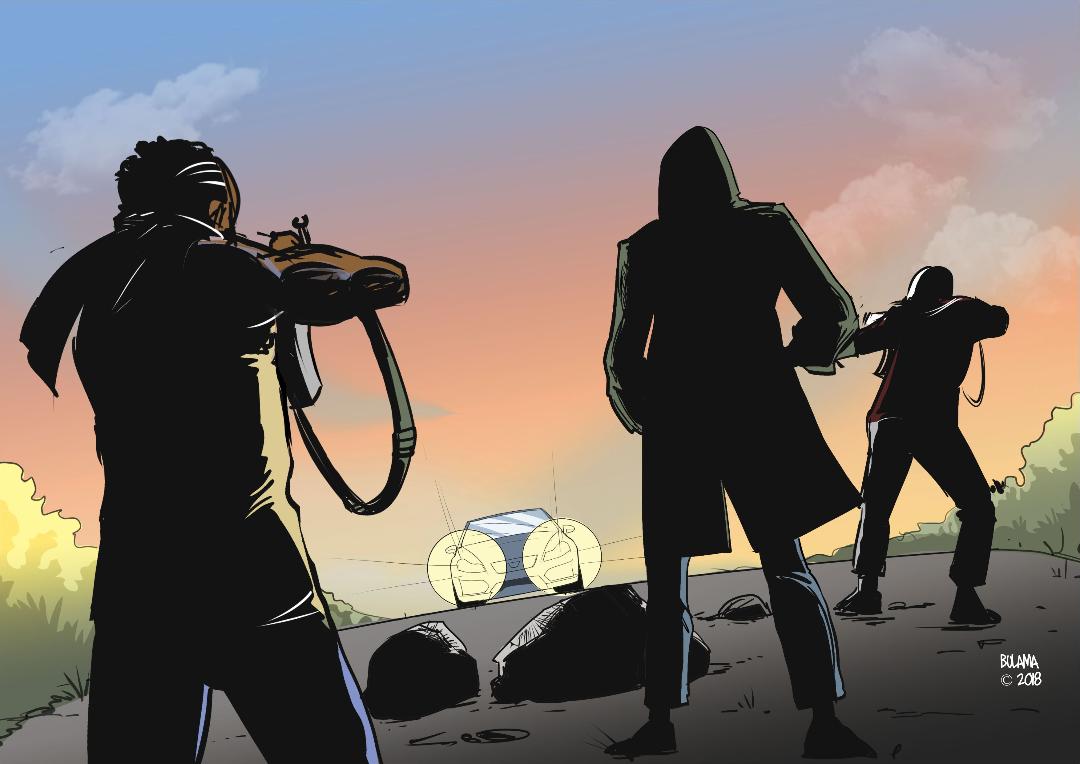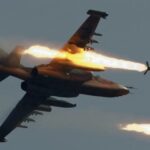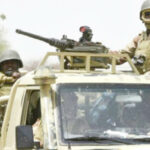Sometime in November 2018, I lost my father. He was relatively fit for his age, so a sudden cardiac issue showed up quite left-field. He died, incidentally, on the very day I began my annual leave, so of course I’d spend the whole 30 days with my family in Kaduna.
Two weeks after, I got a call from the office, about an event outside Nigeria which my boss suggested I represented him at, with the excellent suggestion that it could help ease my mind of grief.
Fast and furious with armed bandits in Kaduna
3 cross-border armed bandits arrested in Lagos
I accepted, before learning the flight would depart from Lagos. I drove in the company of my friend (let’s call him Umar) to Hamdala Hotel, to buy a ticket, but it was late evening, and they had closed.
One thing left to do was to drive to the airport and secure a ticket against the next morning. That was fine, as I had to drop Umar off at the Air Force Base where he lives anyway.
The drive to the airport was uneventful, and I bought a ticket. As we drove back, I noticed it was getting darker, about 6:50pm. Umar and I chatted, as we passed the Commandant’s Gate of the Nigerian Defence Academy.
At that point he suggested I drop him off at the roundabout beside the Air Force Base, as he wanted to visit a coursemate in Tudun Wada, and didn’t want to burden me. I refused, of course, and insisted that I’d drive him to his friend’s.
He reluctantly agreed. We reached the junction where a new road branches off the main highway, beside the College of Forestry, leading to the new Rigasa Train Station, and I drove into it as a shortcut to Tudun Wada. Big mistake.
‘What road is this?’ Umar asked. Oh, a shortcut, I offered, pointing out the brand-new asphalt, and the fact that it is lined with solar-powered street lights.
He countered with the other fact, that it is also very quiet. (Let me add that this was before the massive boom of kidnapping and banditry that close to the city.
I mean, NDA was literally within sight) I shrugged it off, and reassured him that I’ve plied the road several times to either pick up or drop off friends at the train station. By then it was dark, some minutes past 7:00pm. I drove on.
Ahead, by one of the solar lights, I saw a flashlight flickering, up and down, as if to flag us down. I slowed down, assuming it was a police checkpoint.
But as I eased off the accelerator, I also noticed there were roughly six figures, three each on both sides of the road. It was clear, these weren’t cops. “Umar, ba lafiya,” I voiced my misgivings to my military officer friend. Suddenly, we heard a gunshot, from behind.
At this point, my spine froze, and dozens of thoughts flooded my mind. Not sure what was behind us – and also not sure if we would survive a U-turn – I managed to gather myself together, and accelerate ahead, putting the turbo engine of the car to test.
Within seconds, we were face-to-face with the bandits, or potentially, kidnappers. The ones on my side wore ill-fitting camouflage uniforms, and rubber shoes.
They also slung AK-47s. And they also looked very, very Fulani. (Note: This was a period when usage of the term ‘suspected Fulani herders’ was rife in mainstream Nigerian media, almost as much as it was wrong. Criminals are criminals, ethnicity notwithstanding.
I had always defended the Fulani, chalking it up to the fact that they’re rather media-shy, and so newspapers – not Daily Trust – were having a field day.
That was my first confrontation with the fact, which by the way cemented my stand more than ever, that the generalization and branding of Fulani herdsmen as criminals is wrong. But that’s for another day.)
With turbo speed, I drove toward the bandits’ barricade, which it appeared was just being set up for the evening’s business. I noticed a small opening on my side, beside which three of them stood, and I charged in that direction.
Two fellows jumped into the ditch by the roadside. The other one was slow to leap, and my front bumper clipped his knee, sending him rolling over my bonnet, then windscreen, before landing violently on the floor.
As I drove over their tyre-and-wood barricade, the baddies on Umar’s side opened fire. The bullets sprayed without precision, as AK-47s tend to, especially since bandits sometimes saw off their barrels.
All I saw was gunfire blazing, and all I heard was the sound of possible death, prompting an adrenaline rush. My car, being a trusty Peugeot, facilitated our escape.
The car, engine damaged by all activity of bullets, stopped by itself at a safe and busy area on the expressway, and I breathlessly called for a tow.
The driver dropped Umar off at Air Force Base, and I was driven home, where I quietly ate dinner, took a cold shower, and retired to bed. I didn’t sleep, of course. I travelled to Lagos in the morning, met new people in a country I’d never visited before, and came back a bit less frazzled.
I made an effort to look OK, given I’d recently lost my father and almost lost my life. But inside, I was in turmoil, and it replays vividly every now and then, up till this day. Remember the torches the bandits flashed to stop us?
I’m triggered every time I see something similar – like at police checkpoints, etc. – and sometimes I relive that encounter, which in turn triggers memories of the pain of losing my father. Even after almost three years, it still hurts.




